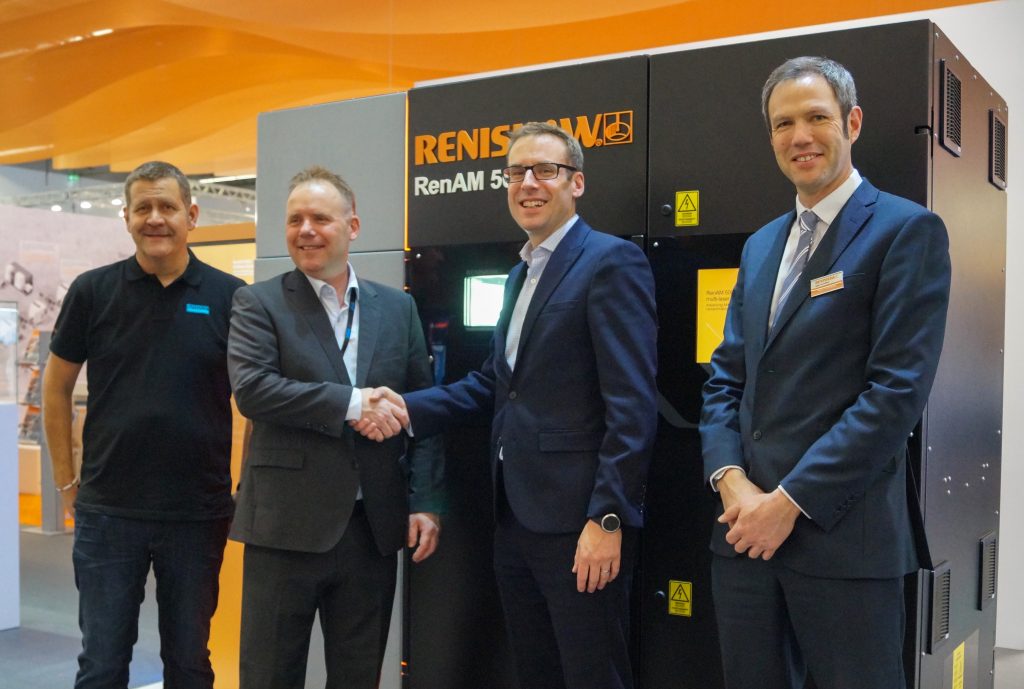UK-based engineering firm Renishaw has introduced a raft of new measures that are designed to insulate its European Union (EU)-based business from the impact of Brexit.
Based on recent internal risk analyses, the British firm has opted to expand on its facilities and stock levels at its EU offices, while making some of them independent subsidiaries. Through the changes, Renishaw aims to simplify its transactions in Europe, while easing any potential red-tape-related disruption that could be caused to its supply chain.
“The Renishaw Group is very familiar with the requirements of international trade and associated distribution,” said William Lee, Renishaw’s Chief Executive. “With the excellent skills and expertise of our employees in our global network, we are able to meet the challenges posed by the UK’s withdrawal from the European Union.”

Renishaw’s global business interests
Renishaw specializes in the development of high-precision metrology and healthcare technologies, and it has significant vested interests in the additive manufacturing industry. For instance, in the last year alone, the firm’s metal 3D printers have been utilized in applications ranging from advanced medical equipment to creating aircraft parts.
Although many of its AM clients such as BAE Systems and the Digital Manufacturing Centre continue to be UK-based, Renishaw has also fostered close ties with partners abroad. The firm has a strong base in North America, opening a new Mexican facility there in June 2019, and it worked with Nova Scotia Community College to 3D print turbine parts last year.
More significantly, Renishaw has worked with EU partners such as the Sweden-based Sandvik in recent years, to qualify new metal 3D powders. Given that the company reported an 11% revenue decline in its FY 2020 financials, it will be keen to avoid any Brexit impact on its EU collaborations, as it aims to return to revenue growth this year.

European expansion post-Brexit
With over 4,400 employees operating out of 79 facilities in 37 countries, Renishaw has become a truly global business. Although the company has factories in the UK, it also manufactures products in Ireland, Germany, India and the U.S, and generates around 95% of its total sales outside the UK.
As a result, Renishaw is duty-bound to ensure that its non-UK business is insulated from any potential trade disruption caused by Brexit. Since the referendum results were revealed in June 2016, the company has therefore analyzed how its manufacturing, logistics and supply chain will be affected, and made sweeping changes to mitigate any risks.
To ensure that its flow of goods isn’t affected by increased regulation, the firm has aligned its pricing model with that of the EU, and made the EURO its anchor currency. Similarly, the company now intends to conduct transactions through its local subsidiaries rather than the UK, while increasing its stock levels across the EMEA region.
Renishaw has also expanded its Irish and German facilities, and converted some of its local offices into subsidiaries, to ease the Brexit adaptation process. While the changes were announced in December last year, when a ‘no-deal’ Brexit was still on the table, the changes could still prove vital in ensuring that the firm returns to growth post-COVID-19.
“We have been focused on ensuring that our EU customers are able to receive optimal support from our local offices and that all transactions, including deliveries of goods, are as simple as possible”, explained Rainer Lotz, President of Renishaw EMEA. “This includes the conversion of sales offices into independent subsidiary companies and greater consistency in our EU processes.”
Assessing the impact of Brexit
Although the UK has now formally left the EU, its impact on the 3D printing industry remains unclear, and its long-term effects may not become apparent for several years to come.
At the time of the vote, a Renishaw spokesperson said that the company expected Brexit to cause “higher costs and additional regulation,” but that it “remained confident of its prospects for the future.” Similarly, British technology innovation accelerator Innovate UK said that it expected to “continue its business as usual.”
Since 2016, EU and UK-based firms have continued to collaborate on wider additive manufacturing projects, seemingly supporting these viewpoints. For instance, Brunel University London and the Hanover-based LZH Laser Akademie have been working on the SAM project since May 2019.
The consortium recently published the results of its first study into the potential skill-gaps in the 3D printing workforce. Initial findings showed that a critical training shortage exists around material qualification, and that pilot courses need to be rolled-out rapidly to address this.
To stay up to date with the latest 3D printing news, don’t forget to subscribe to the 3D Printing Industry newsletter or follow us on Twitter or liking our page on Facebook.
Are you looking for a job in the additive manufacturing industry? Visit 3D Printing Jobs for a selection of roles in the industry.
Featured image shows a group of Renishaw AM 250 laser melting machines. Photo via Renishaw.



